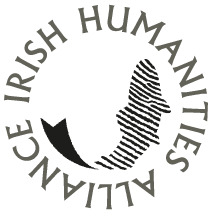What the Humanities Can Contribute to Covid-19 Research
Without humanities research, any investigation of Covid-19, any attempt to understand the crisis and how it has played out, to learn from it and plan for the future, will be incomplete and inadequate. Alongside inquiries in the sciences, healthcare, economics and social sciences, the humanities represent a crucial resource. Neglect of the contribution humanities disciplines can make will undermine our collective capacity to respond to the unique challenge posed by the virus.
Let’s begin with the obvious: we have an obligation to write the history of the pandemic. The historical dimension is local, regional, and national; it is also necessarily comparative and transnational. The situation is unfolding and we do not know when, if and how it will end; nonetheless, we can start the process in two ways – first, crucially, by conducting oral histories (broadly defined).[1] They can and must take place in the moment as a record of an evolving relationship to the crisis. We need to engage actively with many constituencies to make this happen – from “frontline” healthcare workers in hospitals and homes, to those in support services, like shop workers, delivery people, warehouse workers, cleaners, police, and others whose efforts have made it possible for the society to continue under extreme duress. But the opportunity extends to all of us as witnesses and participants – as people affected by loss, unemployment, crisis response, as home-schoolers, carers, as citizens. The history should include not simply oral testimony but the visual record of lock-down and the vast array of contributions across multiple platforms. The stories that emerge will be intimate and individual, but we can also bring resources of big data analysis to bear on this corpus of material.
The second, related task is to archive the pandemic in order to make possible an eventual history of Covid-19 and its articulations.
We have much to learn, at the same time, by re-examining the history of previous pandemics, not just the devastating flu of 1918–19, but MERS, SARS, the Hong Kong H3N2 flu that killed over a million people in 1968–69, AIDS and HIV, and other experiences of infectious disease over the last century. In earlier centuries, episodes of plague outbreak remain relevant and instructive, such as the lethal Great Plague of London 1665–66. I would argue that Daniel Defoe’s Journal of the Plague Year would have provided public health officials with a valuable guide to how events would unfold in the current crisis. Everything is there: reports of people fleeing to country estates; the difficulty of enforcing lockdown; mass graves; social distrust; magical cures; questioning of statistics and under-reported death tolls; and the heroism of local authorities and those we now call carers.
Defoe’s work reminds us that the experience of plague is caught in webs of narrative. The Humanities have powerful insights to offer us. How have stories of coronavirus been told in the pandemic? The explosion of news coverage and consumption is only partly geared around information (daily death tolls, infection rates, hospitalisations, etc.). It is equally about human interest stories – tales of suffering, loss, sacrifice, grief, endurance, as well as protest and conflict. None of us stands outside these narratives. The language of the pandemic itself deserves closer attention. When politicians, for instance, have sought to convey their response and the gravity of the situation they have had recourse, often, to metaphor – describing the moment as one of war against a difficult enemy. We need a critical sensibility to trace the purpose and impact of these tropes in public consciousness.


Published: 23 Jun 2020 Categories: Covid-19 and the Humanities

